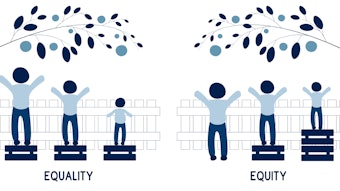Don’t Be Sidelined in the AI Revolution
Pharmacist involvement is key in guiding AI accuracy.

 Whitley Yi, Pharm.D., BCPS
Whitley Yi, Pharm.D., BCPS
But the profession needs to ensure that its perspective guides AI in medication-related applications, said Whitley Yi, pharmacy specialist for Well in Chapel Hill, Texas, during the on-demand Midyear session “What Pharmacists Need to Know About Artificial Intelligence.”
Yi described an AI application that was trained on diagnostic data from an electronic health record system to predict home medication lists for patients. But because the training data was limited to drug classes instead of individual medications, the system was unable to make clinically useful predictions about the patients’ medication regimens.
Another AI application produced accurate medication therapy recommendations for specific diagnoses. But Yi said the application was found to be learning from clinicians’ behavior, such as the ordering of laboratory tests, instead of analyzing factors intrinsic to the patients.
What all that means, Yi said, is that “we have to have pharmacists involved all the way from deciding what data to input all the way to actual implementation.”
“You sit at the intersection between design and deployment,” she added.
AI encompasses traditional machine learning, which applies algorithms to data, and multilayered deep learning, a complex form of machine learning that resembles automated processes in the human brain. The practical possibilities of AI include its potential to overcome the limitations of conventional programming, automate routine tasks, and improve the accuracy of clinical predictions.
 Christy Cheung, Pharm.D.
Christy Cheung, Pharm.D.
“We want to use deep learning to solve problems,” Cheung said.
She said one of the classic dilemmas in AI is that the technology develops and refines its own algorithms as it learns, producing conclusions, or outputs, for users to act upon. But the complex layers of algorithms aren’t accessible to users, who must then trust the process without understanding its workings — the so-called black-box problem.
Cheung described an AI application that a software company used to analyze language in resumes for hiring decisions. Because most applicants were men, the AI application inadvertently learned to prefer male candidates over females — a bias that was exacerbated by the black-box problem.
She said similar concerns can arise when clinical trial data aren’t vetted for biased language before being used to train an AI application.
“Whether conscious or not, this bias can lead to consequences that negatively affect clinical applicability and also health quality in the individual,” Cheung cautioned.
She added that experts in AI are aware of the technology’s limitations in healthcare and are working through them. And she predicted that advances in computing power will improve the capacity of AI to capture and learn from the full universe of patient data to the benefit of patients and clinicians.
“That’s the excitement of AI,” she said.
For additional information on this topic, see ASHP’s Statement on the Use of Artificial Intelligence in Pharmacy, AJHP’s report on Demystifying Artificial Intelligence in Pharmacy, and last year’s AJHP Voices interview with Scott Nelson and Colin Walsh.











